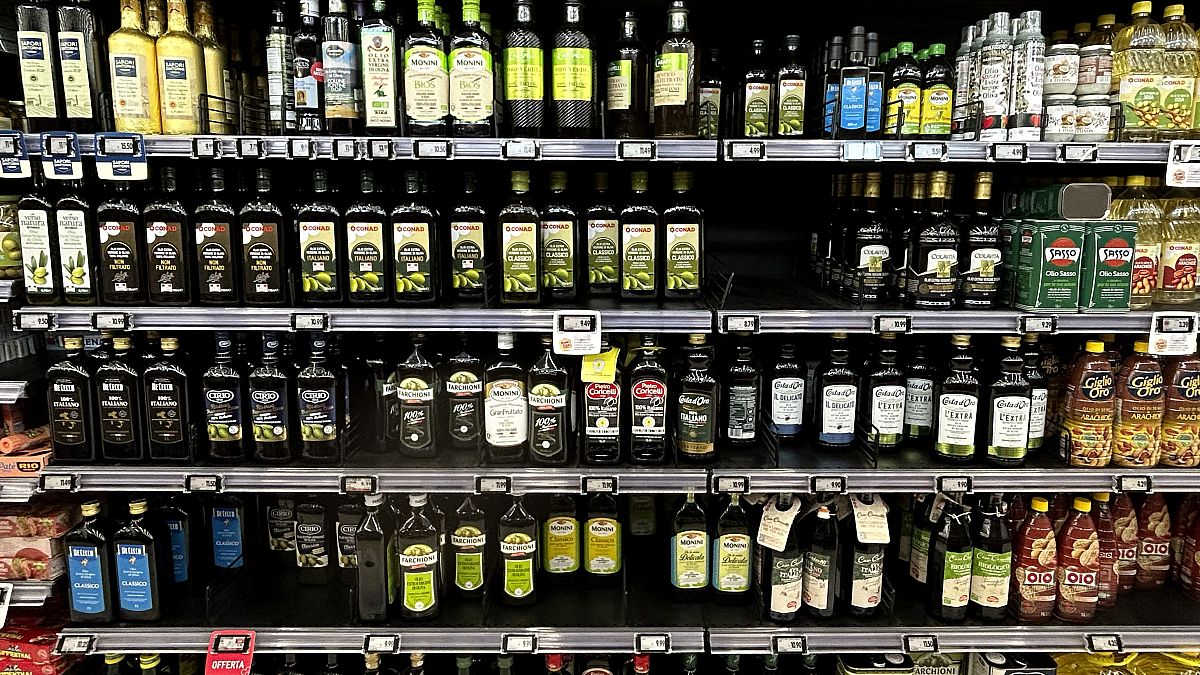Donald Trump has announced his intention to impose a general tariff of up to 20% on imported goods. While sectors like machinery, vehicles, and chemicals are expected to suffer the most, Spain fears its olive oil industry could take a significant hit.
Trump’s plans to impose a blanket tariff on European imports are once again putting Spain’s market at risk, reigniting the long-standing struggle between the two countries over olive oil exports.
A blanket tariff of 10% or 20% would make it more expensive for US companies to import goods, meaning that European exports could fall by up to a third in some sectors, according to economic forecasts.
The possibility of US tariffs brings back troubling memories for Spain, as Trump’s previous administration triggered a major crisis in the olive oil sector by imposing high import taxes.
Spain, the world’s leading producer and exporter of olive oil, sent 70,000 tonnes to the United States in the first half of 2024, granting Spain a market share of 35.45% in volume and 37.60% in value.
The US is the top destination for Spanish olives go, accounting for up to 35% of total exports.
Former President Donald Trump imposed tariffs on about 14% of total imports when he was in the White House, including Spanish olive oil.
Back in 2017, the US imposed tariffs on Spanish olives, citing harm caused to American producers due to EU subsidies directed at Spanish olive producers through the Common Agricultural Policy (CAP).
As a result, the US Department of Commerce imposed anti-subsidy and anti-dumping duties of between 30% and 44% on imports of Spanish black olives.
These duties applied exclusively to Spain, not affecting its competitors such as Greece, Italy, and Portugal.
In 2017, before the tariffs took effect, Spanish olive oil imports to the US were worth $67 million (around €61 million), this number fell in 2022, to just $20 million (€18 million), according to the European Commission.
The EU challenged these measures at the World Trade Organisation, leading to a legal battle spanning over four years and formally concluded in November 2021, when a first panel ruled that the US administration’s actions were in breach of WTO rules.
That decision allowed Brussels to take further retaliatory measures, and the US eventually implemented the panel recommendations, resulting in the eventual removal of the tariffs.
However, the future also remains uncertain if Kamala Harris were to win the presidency, as President Joe Biden maintained his predecessor’s 25% tax on Spanish olive oil when he assumed office in 2021.

